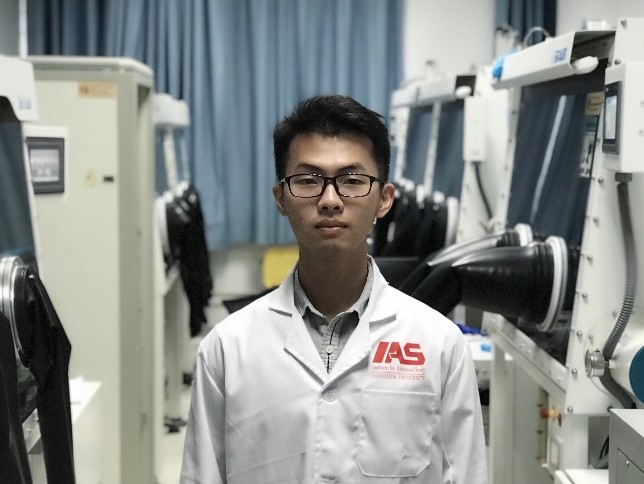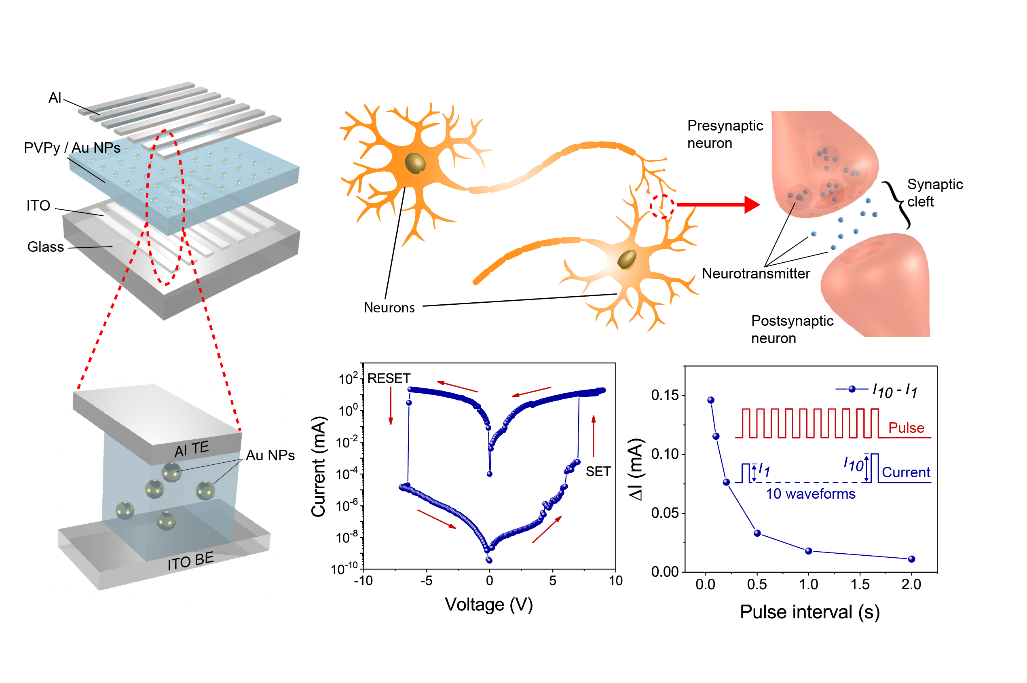Undergraduate student Shirui Zhang from research scientist Ye Zhou's group at IAS recently published a paper named “Artificial Synapse Emulated by Charge Trapping‐Based Resistive Switching Device” in Advanced Materials Technologies.
Enlightened by a highly connected and low-energy-consuming biological neuromorphic system, artificial synapses based on electronic components are expected to overcome the Von Neumann bottleneck of traditional computing. This work developed an artificial synapse based on a two-end resistive device using gold nanoparticles prepared by solution method. The device has highly controllable bistable resistance switching characteristics because of the good charge trapping properties of gold nanoparticles in polymers.In addition, this work simulated a variety of biological synapses and brain-like functions, including enhancement under positive pulse sequences, paired pulse promotion, discharge rate-dependent plasticity, transition from short-term plasticity to long-term plasticity, and learning-forget-re-learning brain-like behaviors.
This project has been funded by the National Natural Science Foundation of China, Department of Science and Technology of Guangdong Province, Shenzhen Science and Technology Commission, academic cooperation study between Shenzhen University and National Taipei University of Technology.
Link:https://onlinelibrary.wiley.com/doi/full/10.1002/admt.201800342




